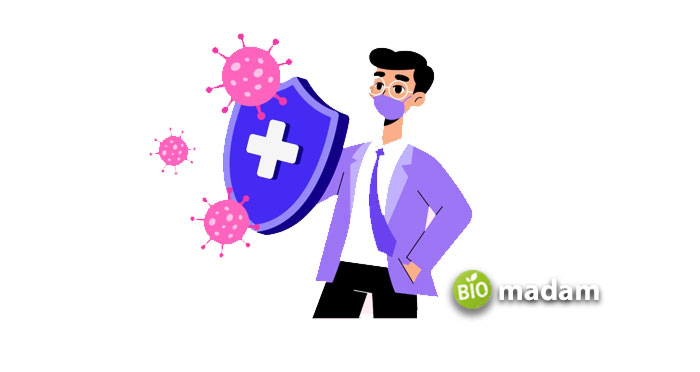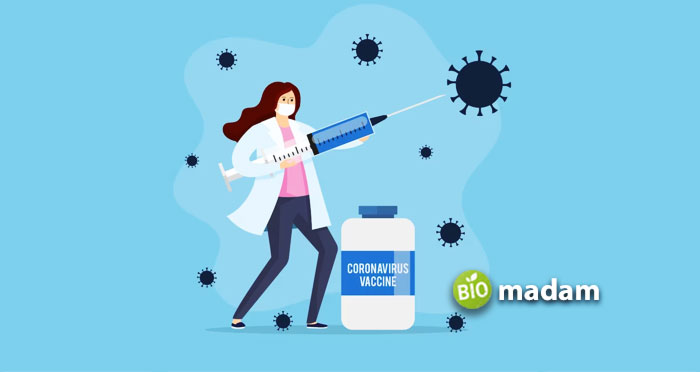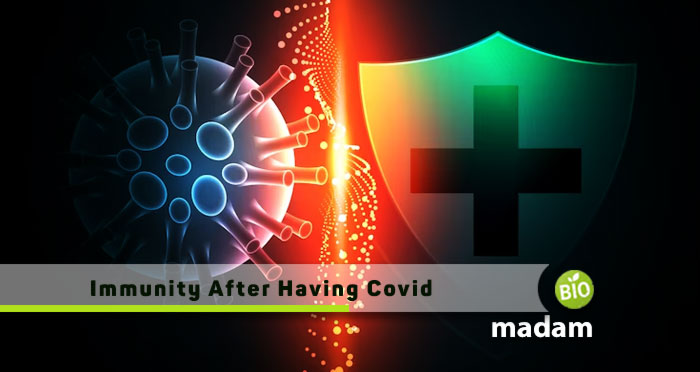The world experienced a decrease in global population in 2020 due to the spread of the coronavirus pandemic. Around 700 million people suffered from Covid-19, and 6.8 million died. Those affected with the viral developed immunity while others were given immunization shots to ensure the virus was not deadly to them. If you have had Covid-19, the chances of reinfection are relatively low as your body produces strong antibodies against the virus. So, the question arises, how long are you immune after having Covid?
Let’s tell you more about immunity and how long immunity after having Covid lasts.
Immunity After Covid-19
Covid-19 is caused by the virus SARS-CoV-2 or Coronavirus from the Coronaviridae family. It affects your lungs, causing different breathing problems, and may prove to be fatal in many cases. Once you have had the coronavirus, your body produces antibodies or white blood cells that prepare it against further exposure to the virus. Immunity can also be provided by injecting the inactivated virus through mRNA vaccination, and the process is called active immunity.
Research shows that the risk of infection is relatively low after 6 to 8 months of infection or vaccination against Covid-19.
Some people have shown immunity to coronavirus for up to a year.
At the same time, Covid vaccination provides you immunization for up to six months. Studies also showed that children had antibodies in their blood for a longer time than adults. The immunity among people may also vary as some people develop more antibodies than others. Dr. Bruce Farber, chief of infectious diseases at Northwell Health, mentions that it is possible to get infected within 90 days of a previous infection, though it is rare.
When exposed to coronavirus, the immune system fights and remembers it. It allows the white blood cells to fight the antigens or pathogens again on repeated exposure. The body produces the following cells when exposed to the coronavirus:
- Antibodies that recognize and remember the coronavirus to neutralize it.
- Helper T cells recognize and tag the virus, while Killer T cells kill it.
- Contrary to T cells, B cells produce antibodies if needed more by the body on interaction with the virus.
However, it is important to remember that reinfections may still occur after immunization as the vaccine does not provide 100% immunity against the virus.

Immunity Against Different Variants
Interaction with Covid-19 previously or vaccination will protect you against that variant and closely related strains. But, if you get infected with a mutated strain, your body will not remember that variant, and you might get serious signs and symptoms. Dr. Thomas Gut, director of the Post-COVID Recovery Center, mentioned that you would be immune to the coronavirus strain that previously infected you and strains closely related. So, the antibodies will not protect you from a new, mutated coronavirus strain.
The Centers for Disease Control recommends Covid-19 vaccination for everyone, including those previously infected. People with prior exposure to the virus, followed by vaccination, showed better results on re-exposure. However, you cannot determine the immunization against a particular variant through any test.
For example, the Omicron BA.4 and BA.5 are the predominant subvariants in the USA. Infection with other coronavirus variants before Omicron would not be effective at preventing BA.4 and BA.5. However, vaccinated individuals were 2.4% less likely to get infected with the virus again than before the unvaccinated, even during the Omicron outbreak. Another research in the UK showed that only 19% of people infected with Covid-19 were protected from the Omicron virus; it means that 80% of people still got infected with the Omicron variant after prior exposure to another coronavirus strain.
Hybrid Immunity Against Coronavirus
When we think of how long immunity after coronavirus lasts, many people mention receiving a Covid-19 vaccine post-infection. So, are they hundred percent immune to the virus now?
If your body developed antibodies after exposure to the coronavirus and you also got the Covid-19 vaccination, it is called hybrid immunity. It provides double immunity through naturally acquired immunity via pathogen exposure followed by the injected vaccine.
Covid Vaccination Booster Doses and Immunity
Considering the huge number of deaths worldwide, WHO emphasizes everyone to get vaccinated against coronavirus. Furthermore, people all over the world were also recommended to get a booster dose to avoid reinfection. It led to a common concern: “Will I need Covid-19 booster vaccines forever.”
While there is no definite answer to it as the pandemic is almost over, the FDA suggested a second round of boosters for citizens above 50. Immunocompromised patients should also get a second booster dose. However, you only need an additional booster dose when you fall into any of the two groups. The FDA’s vaccine committee also proposed the idea of annual Covid vaccination like flu shots. But there has yet to be a confirmation regarding the implementation.

Is it Safe to Get Covid-19 Immunization Naturally?
Another common misconception among the masses rose with the concept of hybrid vaccination. People began thinking it is better to get contagious with Covid before obtaining the vaccine to have better immunity for the future. But are we forgetting that many people lost their lives due to the virus?
WHO strictly encourages everyone to get the Covid-19 vaccine followed by the booster dose. You must not risk your health by getting infected with the virus intentionally before immunization.
How long does it take to Develop Immunity Against Covid-19?
You can get immunization against Covid-19 once you have been infected or through vaccination. Immunity obtained through infection leads to the production of antibodies naturally and is called natural immunity. At the same time, vaccine-induced immunity pushes your body to produce antibodies against the coronavirus.
- Natural immunity, opposite to acquired immunity, builds a few days to weeks after infection with the coronavirus. While the antibodies might form within days, the virus leaves only after completing its lifecycle.
- In the case of vaccination, your body starts producing vaccines a few weeks after immunization and you are protected against the virus after 14 days of your final dose. You will also need a booster dose of the coronavirus vaccine to get full protection.
However, Covid vaccination or hybrid immunization does not mean the virus cannot reinfect you.
Research also shows that over 60% of Americans have had Covid, even if they did not have the symptoms. If you have not gotten the vaccine, you can check your Covid infection status through the TCR (T-cell receptor) assay.
The Bottom Line
People infected with Covid-19 naturally get immunization against the virus as the body produces antibodies, while vaccines are another way to protect the body. On exposure to coronavirus, your body produces antibodies that guard you against getting Covid-19 and also decrease the intensity of the virus attack. Antibodies produced from interaction with the coronavirus protect you from Covid-19 for 6 to 8 months on average and as much as more than a year.
FAQs
How long after having COVID can you get it again?
Research shows that you might get Covid-19 within the first 90 days though it is infrequent. There are higher chances of getting infected with a different variant than the one you are vaccinated against.
Do you always get immunity after COVID?
Coronavirus exposure will give you natural protection against the virus and protect you from getting reinfected with Covid-19 between six months and a year.
Are some people naturally immune to COVID?
While it might seem surprising, some people can be naturally immune to Covid owing to their genes. So, yes, a small group of people may have a natural immunity to Covid without exposure to the virus.
How to rebuild the immune system after COVID?
If you have contracted covid, the best way to improve your body’s immunity is to increase your intake of foods with vitamins and minerals, such as citrus fruits and iron. Experts also suggest light exercise towards the recovery phase.
How good is hybrid immunity?
Hybrid immunity provides 97% immunity against coronavirus compared to 75% protection post-infection. Hybrid immunization was also 42% more effective against reinfection than natural immunity.
What is the most recent COVID variant?
Scientists have found XBB.1.5 to be the most recent dominant variant, with 89.6% of Covid-19 cases worldwide.

Meet me; I am Paulina Zaniewska, who’s more hooked on providing the best health blog. I’ve always been so determined to compete as a nutritionist, and here I am, done with a Master’s in food technology. My brilliant performance throughout encouraged me to help people.

